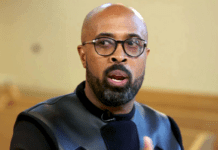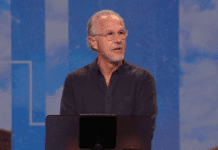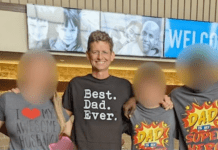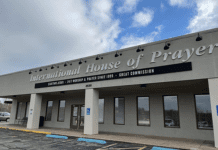During an interview last year, Denhollander said: “The extent that [church and ministry leaders are] willing to speak out against their own community is the bright-line test for how much they care and how much they understand.”
Other reactions about Mohler’s recent apology involved skepticism. Advocate Christa Brown, who ran the website Stop Baptist Predators, questions the timing of Mohler’s turnaround. It comes only after “massive media coverage of sexual abuse and cover-ups,” she says, and if it’s sincere, Mohler’s seminary should return Mahaney’s donations—or forward them to victim-rights groups.
More Fallout Expected From Bombshell Investigation
This week’s three-part “Abuse of Faith” report could have widespread impacts within America’s largest evangelical denomination—and beyond. In a podcast, Mohler says the HC investigation reveals a “horrible pattern of sexual abuse” during the past 20 years, as well as resistance within church leadership to make reforms.
As far back as the 2008 SBC annual meeting, victims asked leaders to take action. Lack of action, according to the first installment of the HC report, is largely because of the SBC principle of church autonomy.
But current SBC president J.D. Greear refutes that notion, saying any church that “proves a pattern of sinful neglect—regarding abuse or any other matter—should absolutely be removed from fellowship from the broader denomination.”
The second installment of the report reveals that since 1998, “at least 35 Southern Baptist pastors, youth ministers, and volunteers who were convicted of sex crimes or accused of sexual misconduct” were “allowed to work” at other churches. Speaking about the SBC, victims’ advocate Dee Ann Miller tells reporters, “There’s no other group that does pass the buck better.”
The report’s third installment notes that “more than 100 Southern Baptists described as former youth pastors or youth ministers are now in prison, are registered as sex offenders, or have been charged with sex crimes.” Although teenagers were targeted most often, smaller children also were victimized.
“You can’t let your guard down,” federal prosecutor Amanda Griffith tells the HC. “There’s the belief that church is sacrosanct, but this can happen anywhere.” Churches have long been considered “soft targets” by sexual predators, and abuse scandals have forced many congregations to tighten safety policies.
High-profile Southern Baptist author and speaker Beth Moore, who revealed she was abused as a child, says church leaders can no longer express shock about the problem’s scope. As the #churchtoo movement grows, expect more painful revelations—and, let’s pray, more reforms and healing.











